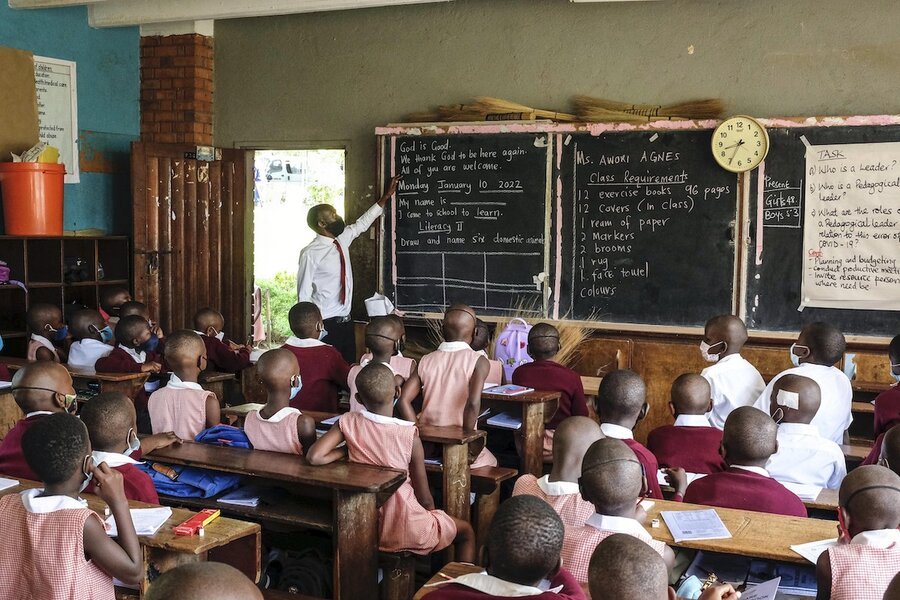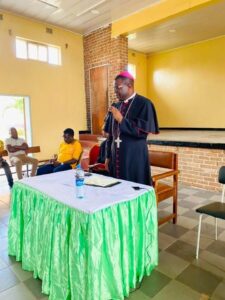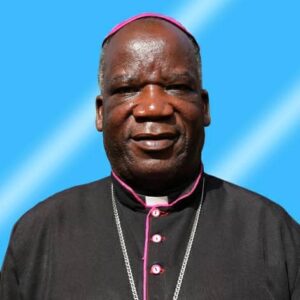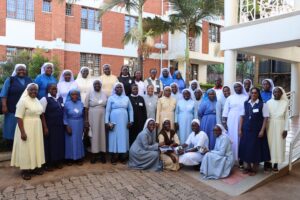UGANDA: Curriculum Condensed to Recover Lost Time as Schools in Uganda Reopen after Two Years of Closure

Sr. Jecinter Antoinette Okoth, FSSA
As the Eastern Africa country of Uganda reopen schools after two years of closure, a directive that was put in place as a containment measure following Covid-19 outbreak in March 2020, a Catholic priest has disclosed that the government has condensed the school curriculum to help recover the time lost when learners were at home.
“Learners will not use the normal school curriculum we have been using previously in Uganda, this has been condensed with some topics removed from the syllabus while others retained,” the Executive Secretary for Education at Uganda Episcopal Conference (UEC) Fr. Ronald Okello shared in an interview with AMECEA Online Wednesday, January 12.
“The National Curriculum Development Centre (NCDC) changed what we used to have and has reduced 42 subjects to 20,” the Ugandan cleric explained highlighting some of the strategies the Ministry of Education has put in place to help cover for the lost two years.
He narrated that learners have automatically been promoted to the next level even though they studied for only one and a half months in 2020 before experiencing lockdown in the country.
According to Fr. Okello who has been serving at the Conferences’ Education office for the past four years, the first one month after reopening of schools which was Monday, January 10, “Students will concentrate on the summarized version of what they could have learnt in their previous classes and then get into the new syllabus for the current level through a bridged curriculum.”
Additionally, to help the nation that had the longest lockdown worldwide recover the lost learning time, the government has adjusted the school calendar hence students will take short breaks of about two weeks and take longer in school.
During the Wednesday interview, the priest underscored that Government did not only organized for programs to be promulgated through media platforms to help students continue with learning during the lockdown period, but also ensured that text books for different subjects were distributed to learners in various parts of the country.
Lamenting on how the long stay at home has affected the lives of the youths, Fr. Okello said, “The country registered so many pregnancies and early marriages that took place within the two years and many boys also began small businesses hence they don’t see the need of going back to school since and they feel very comfortable with what they are doing.”
“The youths also got involved in anti-social behaviors including drugs and they also experienced the impact of domestic violence,” said the priest.
In order to help the expectant girls continue with their studies, the government has asked schools to absorb them back and allow them continue with learning even though the UEC’s Executive Secretary for Education notes that “containing the expectant girls in schools is quite tricky considering how delicate they are when in such a state.”
Besides the challenges experienced by learners during the protracted school lockdown, Fr. Okello observed that it was also a time when the children bonded more with their parents and they knew each other better.
He added, “Some of them learnt how to be self-reliant through the small businesses they ventured into, and they also got opportunity to learn more about their cultures as compared to the times when in schools.”
The cleric urged teachers to be more of parents to learners as they go back to classes as some children have acquired characters that may distort the culture of the school, and also asked the government to strongly support parents so that private schools may not demand too much fees from them.
Sharing her experience on having children home for nearly two years, a parent Ms. Maureen Kochiyo narrated that the greatest risk has been “incest pregnancies,” which rose due to idleness of children who were curious “to explore nearly everything.”
Ms. Kochiyo whose daughter studies at Trinity College Nabbingo, Central Uganda, a school founded by the Missionaries of Africa in Kampala Archdiocese said, “Even though it was a long period for the children at home, I had a great bond with the child and this was so close to know her much more.”
She adds, “I appreciate that I identified a lot of talents in her and she got time to learn several things including cooking, baking, knitting which she could rarely get time to know.”
Ms. Kochiyo’s concern is that children who ventured into business during this period and find it difficult to switch back to books, should be helped and encouraged to complete their studies.


